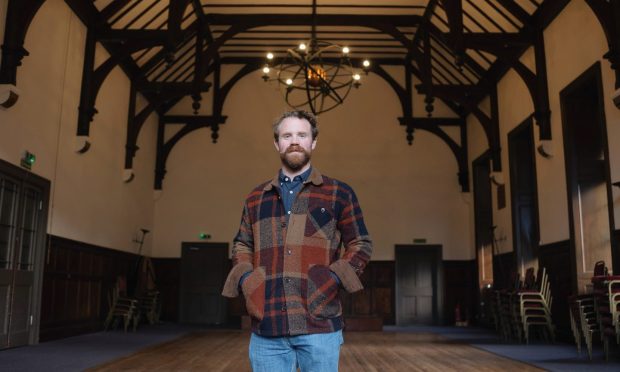The Tay Cities Deal must aid and protect small businesses which generate around £4.5 billion for the local economy, traders have warned.
The call by the Federation of Small Businesses (FSB) comes as new figures show Dundee City Council is falling behind the national average in how much it spends on local small and medium-sized enterprises.
Launching its election manifesto, local FSB officials say Perth and Kinross Council’s incoming administration must make sure the Tay City Deal’s proposed £1.84 billion investment will benefit local companies.
Incoming council leaders will be put under pressure to appoint a “small business champion” to safeguard the region’s 6,000 small and medium sized enterprises.
A dedicated Champion is needed to represent small businesses’ interests when developing the deal, FSB’s local branch said. He or she would become part of the cities deal project management office and sit on the join committee, overseeing delivery of the deal.
Around 95% of businesses in the Perthshire patch account for more than 32,000 — or 60% — of private sector jobs, along with 11,000 self-employed.
And the top sectors in the council area — wholesale, retail, agriculture, forestry and fishing — are dominated by small businesses.
Across the Tay region, small businesses generated around £4.5 billion for the local economy.
According to the federation’s survey, more than two out of three smaller businesses in the area feel that decisions taken by local authorities are too remote from their communities.
Corrado Mella, chairman for the FSB in Perth and Kinross, said: “The new administration must ensure that the Tay Cities Deal reflects the broad range of businesses across the catchment area.
“In Perth and Kinross, the vast majority of these are micro and small businesses, many operating in rural areas.
“If the deal is to make any meaningful impact on the lives of people and communities, it must take account of diversity and the importance of inclusive growth to the Perthshire economy.”
He said: “An independent small business champion would make sure that key decisions take small businesses’ interests into account, that they get a fair share of the investment and access to the new business tendering opportunities that the Cities Deal will bring.”
FSB chiefs will also urge Dundee’s new administration to increase spending with local firms.
Statistics collated by the Improvement Service — the national organisation tasked with improving local government — show that Dundee council spent only 17% of their procurement budget with the area’s smaller firms, compared with a national average of 20%.
In contrast, Aberdeen City Council spends 26% of its budget with local firms while Shetland Islands council uses more than half of its spending power on the local economy.
Graham Bradley, who chairs FSB’s Dundee and Angus branch, said: “Council budgets are under significant pressure. That’s why it is important that they squeeze every drop of value out of their spending power.
“Figures show that if councils increased their spend with smaller, local firms by 2% per year, it would generate an extra £3m per annum for local economies.”










